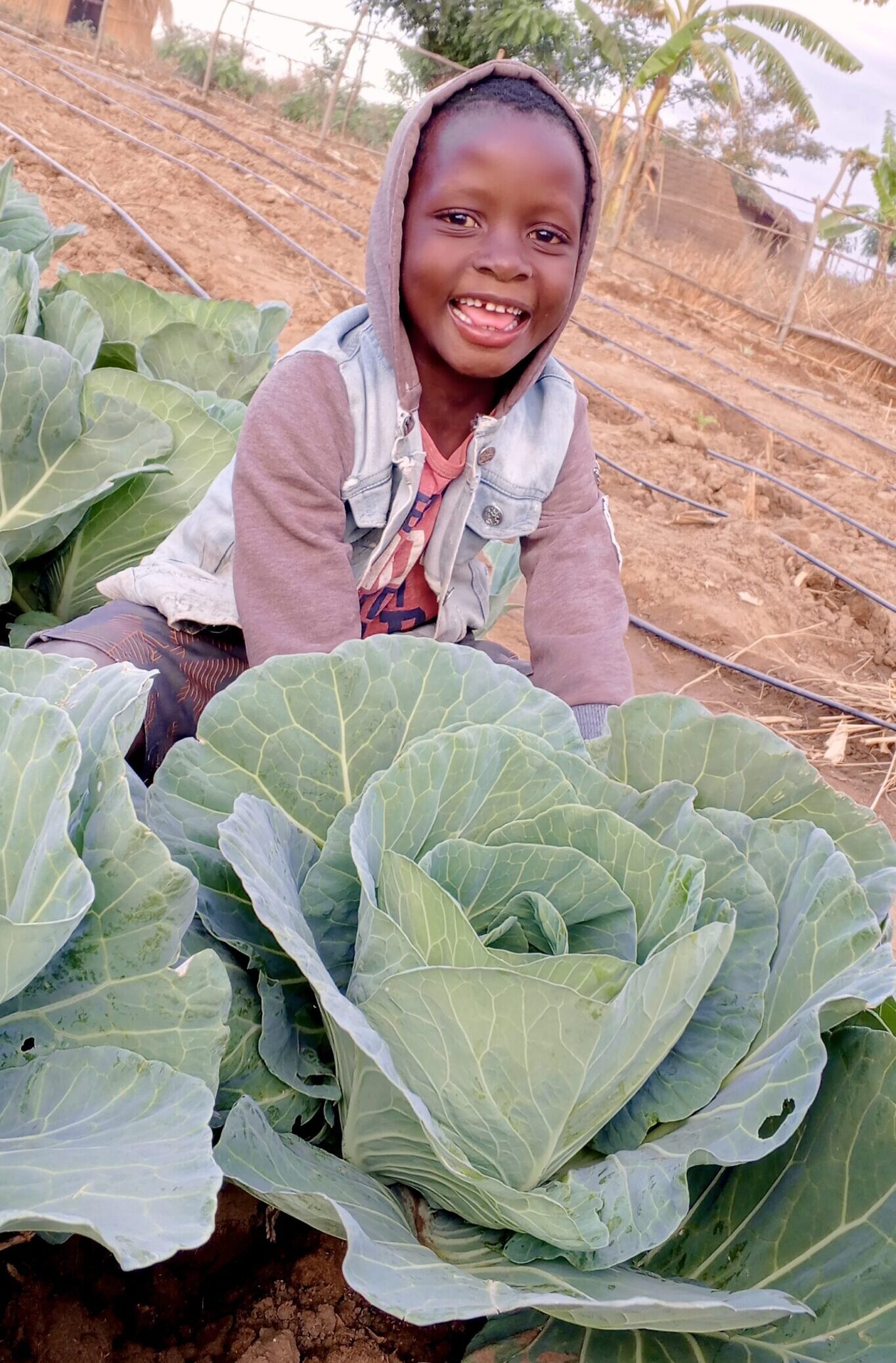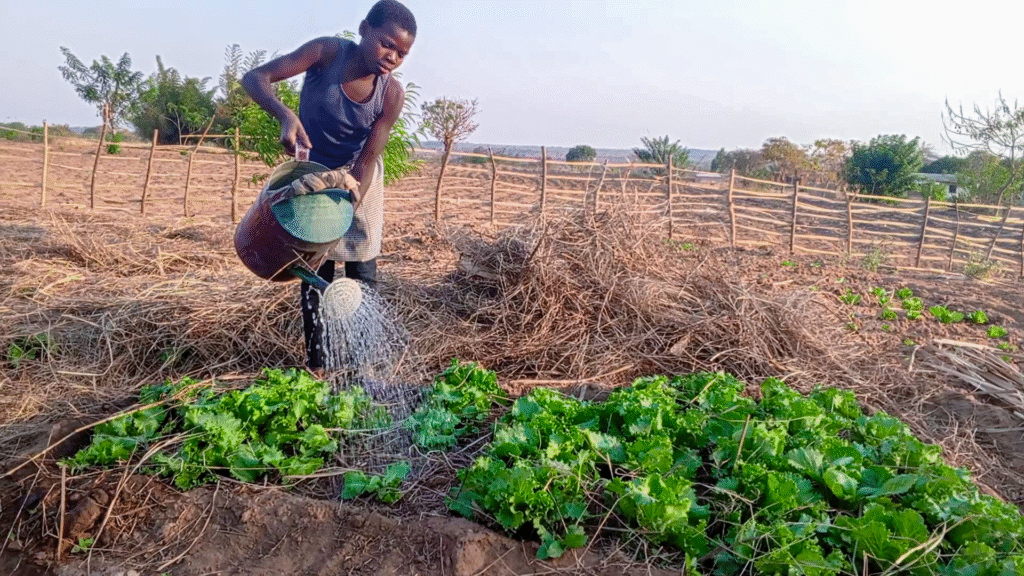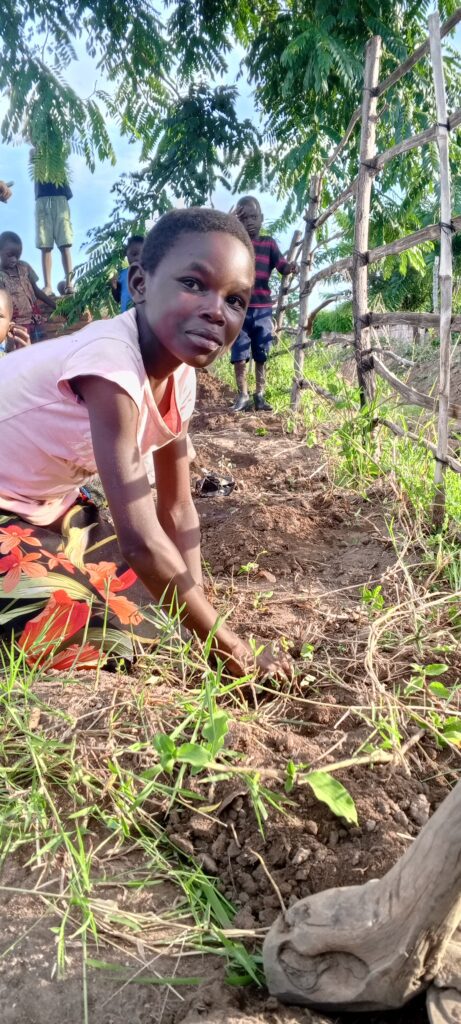PROJECTS UPDATES
Toll Free Call
+1 910-626-85255
Nourishing Minds project sows’ seeds of change in Malawi, where malnutrition and food insecurity pose a threat to the health of countless children. It gives kids between the ages of 6 and 14 practical experience in organic farming, composting, and crop harvesting over 8 months. By integrating food literacy into their education, the project empowers young learners to make informed choices about nutrition while fostering a deeper connection to sustainable agriculture. In order to increase household food security and secure a healthier future for their families. Nourishing Minds enrolls 25 30 children who cultivate a variety of crops, without chemical fertilizers or pesticides. Beyond merely cultivating food, the project had a long-lasting effect on the kids by teaching them resilience, problem-solving techniques, and the value of environmental stewardship.
Nourishing Minds Project
The program fosters a sense of agency among participants. Children who once faced hunger can now contribute to their families’ food security. Mothers shift from relying on unstable markets to growing their own food and financially supporting one another.
Based in the rural outskirts of Lilongwe, specifically in Chiwilira Village, the Nourishing Minds project, supported by the Kanthari Foundation Switzerland,, works with 25 children aged 6 to 14 and their mothers. The goal is to equip the next generation with the skills necessary to grow, cook, and share nutritious food using regenerative practices.
Our participants engage in hands-on learning about farming and food preparation—not in traditional classrooms but directly on the land. The impact of Nourishing Minds goes beyond nutrition; over 75% of the participating children develop a strong understanding of sustainable agriculture and healthy eating. They learn to identify alternatives to chemical fertilizers and cultivate a diverse range of nutrient-rich crops.

Our Curricula
The curriculum is divided into five phases, each based on one of the basic taste sensations.
Phase One - Bitter
Bitter: Introduction to the nutritional value of bitter crops
PhaseTwo - Sour
Sour: Establishment of over 20 home kitchen gardens to promote practical farming skills
Phase Three - Salty
Salty: Teaching of basic cooking techniques, composting, and mulching

"When children learn to nourish the land, they learn to nourish their future."
At Thanzi265, we cultivate more than just crops; we foster resilience, knowledge, and hope. When children are exposed to the wisdom of nature, sustainability can truly thrive.
Numbers Speak for Themselves
Forests are disappearing at a startling rate in Malawi's rural Lilongwe (Dyuku Village & Surrounding Communities). Climate pressures, unsustainable farming practices, and the production of charcoal are all contributing factors to deforestation, which is depriving communities of essential resources, increasing food insecurity, and hastening environmental collapse
Our Method:
✅ Teaching Sustainable Agriculture (Agroforestry): We train children to integrate trees with crops—boosting soil health, biodiversity, and yields while combating erosion.
✅ Climate Education: Children are taught how deforestation contributes to climate change and how trees are essential for resilience, clean air, and water.
✅ Action Over Words: By participating in our Tree Planting Day, our Nourishing Minds participants helped to restore the degraded land surrounding the Thanzi265 farm. We planted 250+ native seedlings—symbols of renewal and commitment
Why Focus on Children?
Children are the future farmers, leaders, and guardians of the environment. If we empower them with the right sustainable skills today, we are sowing the seeds for a sustainable and greener tomorrow.
Thanzi265’s curriculum teaches young minds the principles of cultivating trees alongside crops, enabling them to understand the delicate balance between agriculture and nature. This knowledge equips them to nurture not only their communities but also the rich biodiversity of their surroundings. As they grow, they will become stewards of the land, fostering practices that support the health of ecosystems while ensuring their communities thrive.
Together, we are creating a harmonious relationship between people and the environment, inspiring a generation that will work hand in hand with nature rather than in conflict with it.

